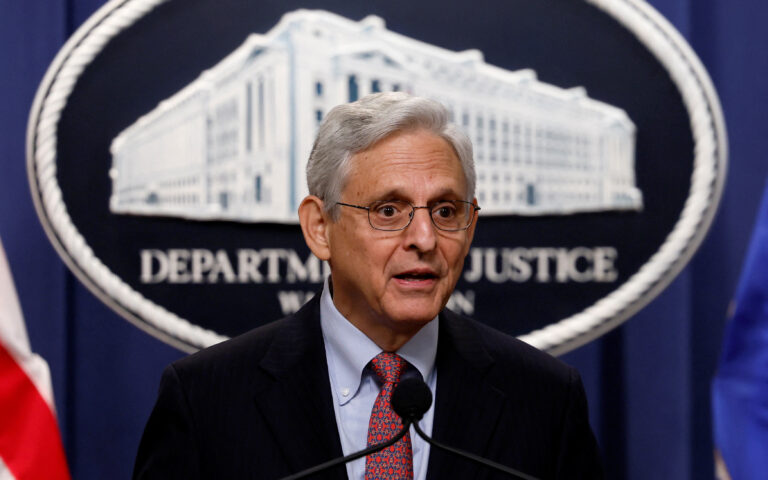
In a shocking turn of events, U.S. Attorney General Merrick Garland announced that Binance, one of the world’s largest cryptocurrency exchanges, and its CEO Changpeng Zhao have accepted criminal charges related to money laundering and violations of U.S. sanctions. This unprecedented development has sent shockwaves throughout the financial world, marking a significant chapter in the intersection of cryptocurrency, regulatory scrutiny, and the global fight against illicit financial activities.
The Allegations Unveiled
U.S. Attorney General Merrick Garland, in a press conference that echoed through the financial corridors, detailed the charges against Binance and Changpeng Zhao. The allegations encompass a wide range of financial misconduct, including but not limited to money laundering and willful violations of U.S. sanctions. The U.S. government asserts that these actions have had profound implications for the stability of the financial system and pose a serious threat to national security.
The charges highlight the authorities’ concerns about the potential misuse of Binance’s platform for illegal financial activities. Money laundering, a common concern in the cryptocurrency space, has been a persistent challenge for regulators globally. The acceptance of criminal charges by Binance and its CEO underscores the necessity for robust regulatory frameworks to keep pace with the rapidly evolving landscape of digital assets.
Binance and Changpeng Zhao’s Response
In response to the charges, Binance and Changpeng Zhao released a joint statement acknowledging the gravity of the situation. They expressed their commitment to cooperating fully with the U.S. authorities to resolve the legal proceedings promptly. The statement also outlined their dedication to implementing enhanced compliance measures to prevent any future misuse of the platform for illicit activities.
This unprecedented move by one of the cryptocurrency industry’s giants raises questions about the effectiveness of current regulatory mechanisms and the need for comprehensive reforms to ensure the integrity of the financial system.
Financial Ramifications: A Historic Penalty
One of the most remarkable aspects of this announcement is the staggering penalty attached to the charges. Binance and Changpeng Zhao have agreed to pay a penalty exceeding 4 billion dollars, making it one of the largest fines in the history of financial regulation. This colossal sum is not only a punitive measure but also serves as a stark warning to other entities in the cryptocurrency space about the potential consequences of non-compliance with regulatory standards.
The financial penalty is expected to have ripple effects across the cryptocurrency market, influencing the behavior of other platforms and prompting a reevaluation of compliance measures industry-wide. The unprecedented nature of this penalty could redefine the expectations of regulatory bodies in their dealings with cryptocurrency exchanges.
Impact on the Cryptocurrency Ecosystem
The announcement has already had a profound impact on the cryptocurrency ecosystem, with Binance’s native token (BNB) experiencing significant fluctuations in its market value. Traders and investors are closely monitoring the situation, and the broader market sentiment is expected to be influenced by the ongoing developments surrounding these charges.
This turn of events also prompts a broader discussion within the cryptocurrency community about the balance between innovation and regulation. While the decentralized nature of cryptocurrencies is often hailed as a revolutionary aspect, incidents like these underscore the urgent need for effective regulatory frameworks to prevent abuse and protect users.
Looking Ahead: Regulatory Reforms and Industry Response
The charges against Binance and Changpeng Zhao have ignited discussions about the future of cryptocurrency regulation. Regulatory bodies worldwide are likely to scrutinize their existing frameworks, seeking ways to enhance oversight and prevent similar incidents. The industry, too, is expected to respond with increased efforts towards self-regulation and collaboration with authorities to foster a more transparent and secure environment.
As the legal proceedings unfold, the eyes of the global financial community will be fixed on the developments surrounding Binance and its CEO. The outcome of this case has the potential to shape the regulatory landscape for cryptocurrencies, setting precedents that will influence how governments and industry participants navigate the evolving dynamics of digital finance.
In conclusion, the announcement by U.S. Attorney General Merrick Garland that Binance and its CEO Changpeng Zhao have accepted criminal charges related to money laundering and violations of U.S. sanctions, agreeing to pay a penalty exceeding 4 billion dollars, marks a pivotal moment in the history of cryptocurrency regulation. The repercussions of this event are likely to be felt far and wide, prompting introspection and action within the industry and regulatory spheres alike. As the cryptocurrency ecosystem matures, the need for responsible and accountable practices becomes more apparent than ever.